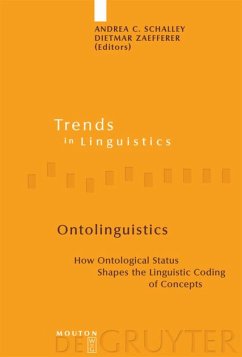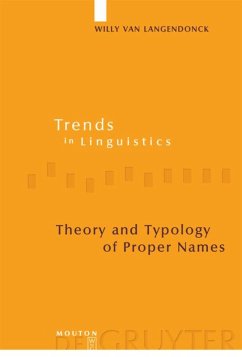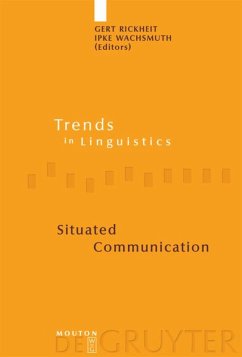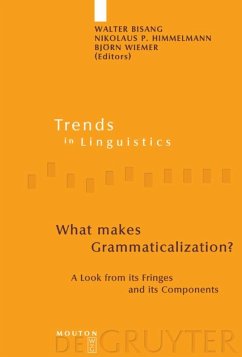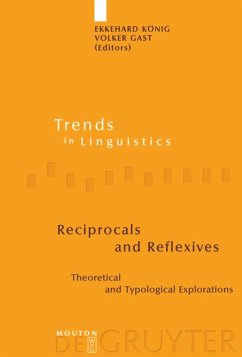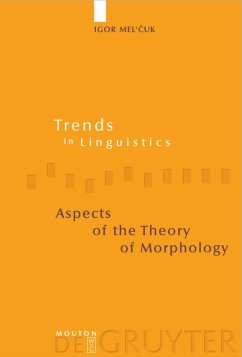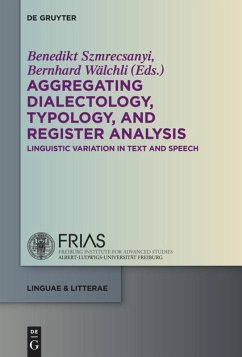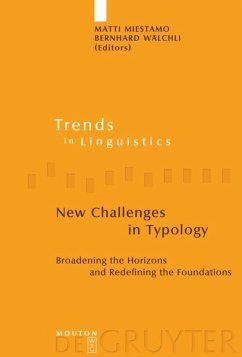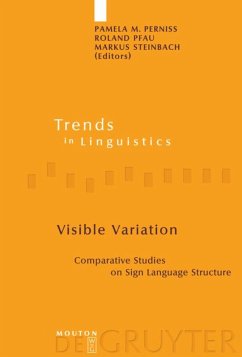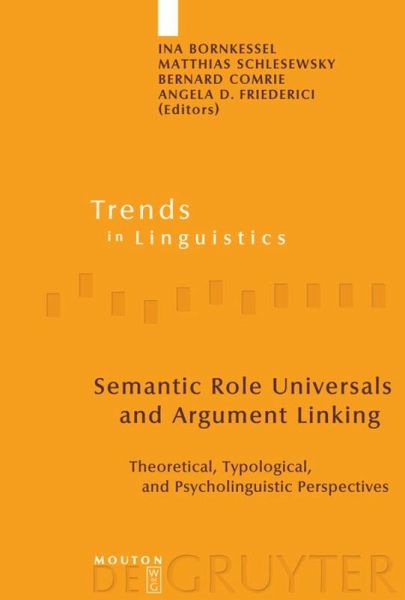
Semantic Role Universals and Argument Linking
Theoretical, Typological, and Psycholinguistic Perspectives
Herausgegeben: Bornkessel, Ina; Schlesewsky, Matthias; Comrie, Bernard; Friederici, Angela D.
Versandkostenfrei!
Versandfertig in 1-2 Wochen
220,00 €
inkl. MwSt.

PAYBACK Punkte
0 °P sammeln!
The concept of semantic roles has been central to linguistic theory for many decades. More specifically, the assumption of such representations as mediators in the correspondence between a linguistic form and its associated meaning has helped to address a number of critical issues related to grammatical phenomena. Furthermore, in addition to featuring in all major theories of grammar, semantic (or 'thematic') roles have been referred to extensively within a wide range of other linguistic subdisciplines, including language typology and psycho-/neurolinguistics.This volume brings together insigh...
The concept of semantic roles has been central to linguistic theory for many decades. More specifically, the assumption of such representations as mediators in the correspondence between a linguistic form and its associated meaning has helped to address a number of critical issues related to grammatical phenomena. Furthermore, in addition to featuring in all major theories of grammar, semantic (or 'thematic') roles have been referred to extensively within a wide range of other linguistic subdisciplines, including language typology and psycho-/neurolinguistics.
This volume brings together insights from these different perspectives and thereby, for the first time, seeks to build upon the obvious potential for cross-fertilisation between hitherto autonomous approaches to a common theme. To this end, a view on semantic roles is adopted that goes beyond the mere assumption of generalised roles, but also focuses on their hierarchical organisation. The book is thus centred around the interdisciplinary examination of how these hierarchical dependencies subserve argument linking - both in terms of linguistic theory and with respect to real-time language processing - and how they interact with other information types in this process. Furthermore, the contributions examine the interaction between the role hierarchy and the conceptual content of (generalised) semantic roles and investigate their cross-linguistic applicability and psychological reality, as well as their explanatory potential in accounting for phenomena in the domain of language disorders.
In bridging the gap between different disciplines, the book provides a valuable overview of current thought on semantic roles and argument linking, and may further serve as a point of departure for future interdisciplinary research in this area. As such, it will be of interest to scientists and advanced students in all domains of linguistics and cognitive science.
This volume brings together insights from these different perspectives and thereby, for the first time, seeks to build upon the obvious potential for cross-fertilisation between hitherto autonomous approaches to a common theme. To this end, a view on semantic roles is adopted that goes beyond the mere assumption of generalised roles, but also focuses on their hierarchical organisation. The book is thus centred around the interdisciplinary examination of how these hierarchical dependencies subserve argument linking - both in terms of linguistic theory and with respect to real-time language processing - and how they interact with other information types in this process. Furthermore, the contributions examine the interaction between the role hierarchy and the conceptual content of (generalised) semantic roles and investigate their cross-linguistic applicability and psychological reality, as well as their explanatory potential in accounting for phenomena in the domain of language disorders.
In bridging the gap between different disciplines, the book provides a valuable overview of current thought on semantic roles and argument linking, and may further serve as a point of departure for future interdisciplinary research in this area. As such, it will be of interest to scientists and advanced students in all domains of linguistics and cognitive science.



